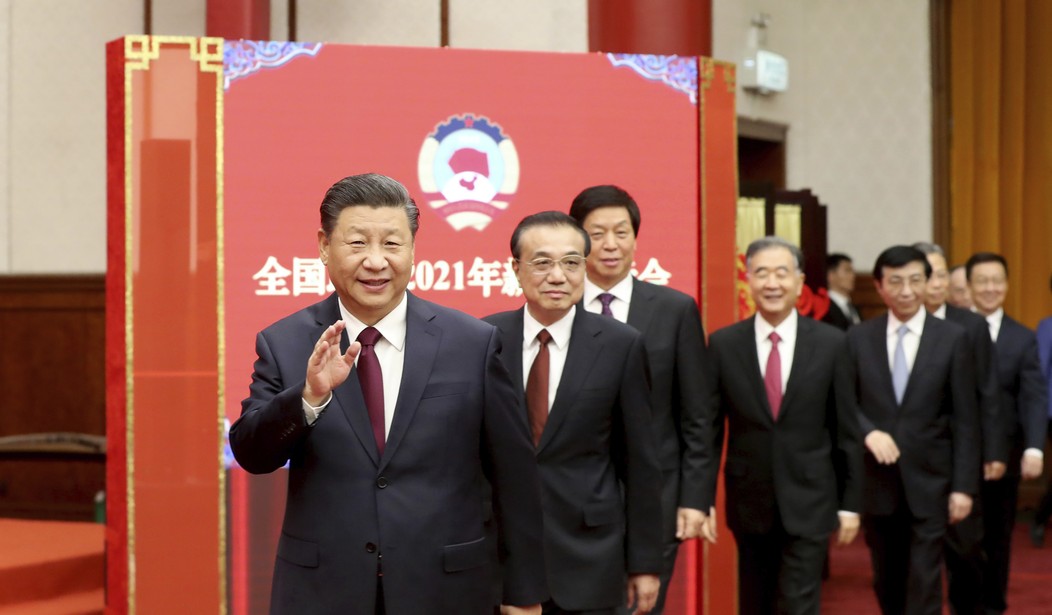The United States is known as the land of the free, but it has become a place where the government decides whom we are allowed to buy from and sell to. For instance, when denied the freedom to trade without paying an expensive import tax, many Americans will find themselves begging our trade overlords for an exemption. This is, I believe, a fair description of the Biden administration's decision to not only maintain ineffective import taxes -- also called tariffs -- but to re-up the listless exemption process.
After a monthslong review by her agency, United States Trade Representative Katherine Tai recently announced that the tariffs imposed by the Trump administration in order to make the Chinese government change its ways have failed. Yet the administration's prescription seems to be more of the same.
It's a shame. By staying with the tariffs, the administration continues to signal a belief that when it comes to trade, Uncle Sam always knows best. While tariffs are pitched to the public as a way to help domestic workers or boost U.S. competitiveness, they always penalize domestic consumers through fewer choices and higher prices. Many of these consumers are themselves domestic producers trying to secure the goods they need to make and sell fundamentally American products.
Over at the Cato Institute, Scott Lincicome summarized the point well:
"(T)he tariffs that the Trump administration imposed on Chinese imports harmed U.S. consumers and manufacturers, deterred investment (mainly due to uncertainty), lowered U.S. GDP growth, and hurt U.S. exporters (especially farmers but also U.S. manufacturers that used Chinese inputs)."
Meanwhile, the tariffs aren't achieving former President Donald Trump's goal to pressure China to give up its central planning. The truth is that the reliance on tariffs -- instead of on a real trade agreement's traditional compliance incentives -- set it up to fail. As Lincicome explains:
"(B)ecause the agreement is so one-sided, China -- the party making all of the concessions -- has very little incentive to comply in order to maintain its agreement benefits (there are none) or encourage U.S. compliance (there's nothing for the U.S. to comply with)."
Recommended
He adds that "current U.S. policy actually appears to have pushed China to double down on self-sufficiency, distortive industrial policy, and nationalism more generally."
As for the hope that the tariffs would force multinational companies in China to settle back in the United States, this has failed too. Reporting on a new paper published by researchers at the University of Kansas and the University of California, Irvine, Reason Magazine's Eric Boehm wrote this:
"Roughly 11 percent of multinational companies exited China in 2019, the first full year in which tariffs were in place -- a significant increase from previous years. But the overall number of multinational firms operating in China actually increased during that same year, as foreign investment continued to flow into China even as the trade war ratcheted up costs."
To the extent that firms left China, it apparently had less to do with the tariffs than with the uncertainty created by the trade war between an erratic president and the Chinese authoritarian government.
Yet, our policy is to continue doing what hasn't worked before. Tai, President Joe Biden and our trade overlords may hope that we will all swallow this bitter pill because they are allowing American producers to come and plead their cases. It will be little comfort to those who received no mercy during the Trump administration.
Indeed, data from a September 2021 Congressional Research Service report reveal that only a small percentage of applicants were granted exemptions. The process was, and I assume will continue to be, skewed toward special interests. It was also arbitrary, costly and time consuming, as the Government Accountability Office has documented.
When faced with this evidence, most people would back away from using tariffs -- but not politicians and trade bureaucrats. It's not just pursuit of a failing policy, it's also doubling down on the idea that American producers must beg for the freedom to continue trading and doing what is best for their businesses and employees.
Are we in the land of the free, or the land of the permission-slip petitioners?
























Join the conversation as a VIP Member